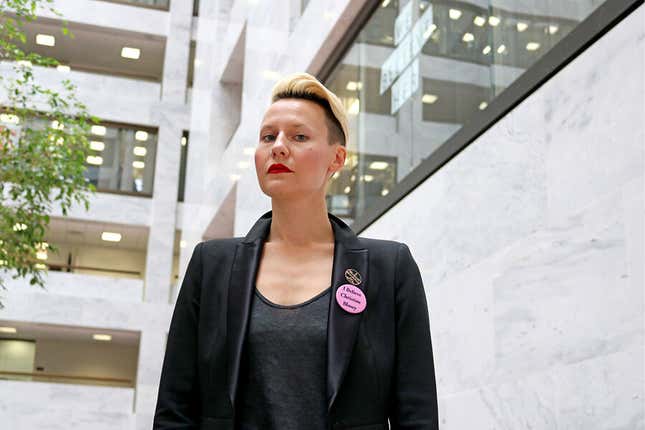Lyft Pays Shareholders $25 Million for Driver Sexual Assaults—But Nothing for Survivors
The company's wealthy shareholders claim they were the real victims harmed by Lyft's sexual assault scandals. Gang rape survivor Alison Turkos begs to differ.
JusticePolitics

On Thursday, Lyft agreed to a $25 million settlement to resolve claims from its shareholders that the company failed to be transparent about “safety problems”—which sure seems like a gentle way to phrase a 2019 lawsuit from 14 women who say they were raped or sexually assaulted by their Lyft drivers.
Lyft shareholders claimed that by concealing these issues and misleadingly posing as a socially conscious alternative to Uber, the company’s actions posed an “existential risk” to shareholders’ profits when Lyft went public in 2019. Around the same time that the lawsuits emerged, the company’s value almost immediately tanked and never recovered.
Now, Lyft shareholders are calling the $25 million settlement an “excellent” result—something of a Cinderella story, given the “exceedingly unlikely” prospect of recovering the $777 million of potential damages if the case went to trial, Reuters reports.
According to Alison Turkos, one of the survivor-plaintiffs suing Lyft, neither she nor any of the other survivors harmed by Lyft are receiving a dime. She told Jezebel in a phone interview that she fears people who see Thursday’s news will read “$25 million” and “settlement” and conclude that Lyft is paying survivors.
-

-

-

-

-

-

-

-

-

-

-

-

-

-

-

-

-

-

-

-

-

-

-

-

-

-

-

-

-

-

-

-

-

-

-

-

-

-

-

-








































